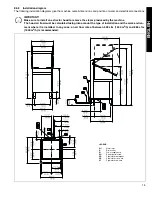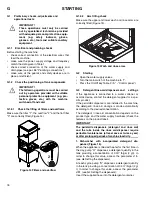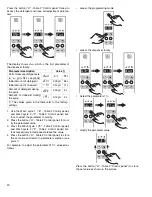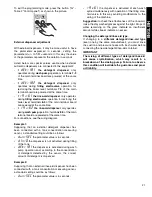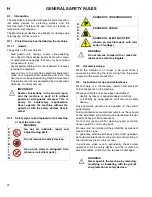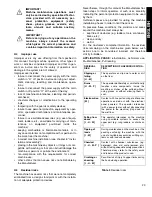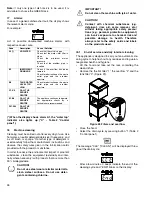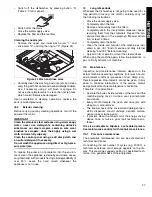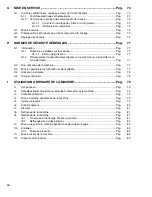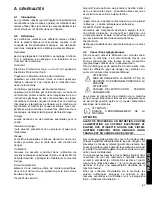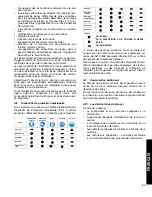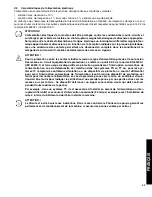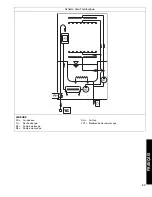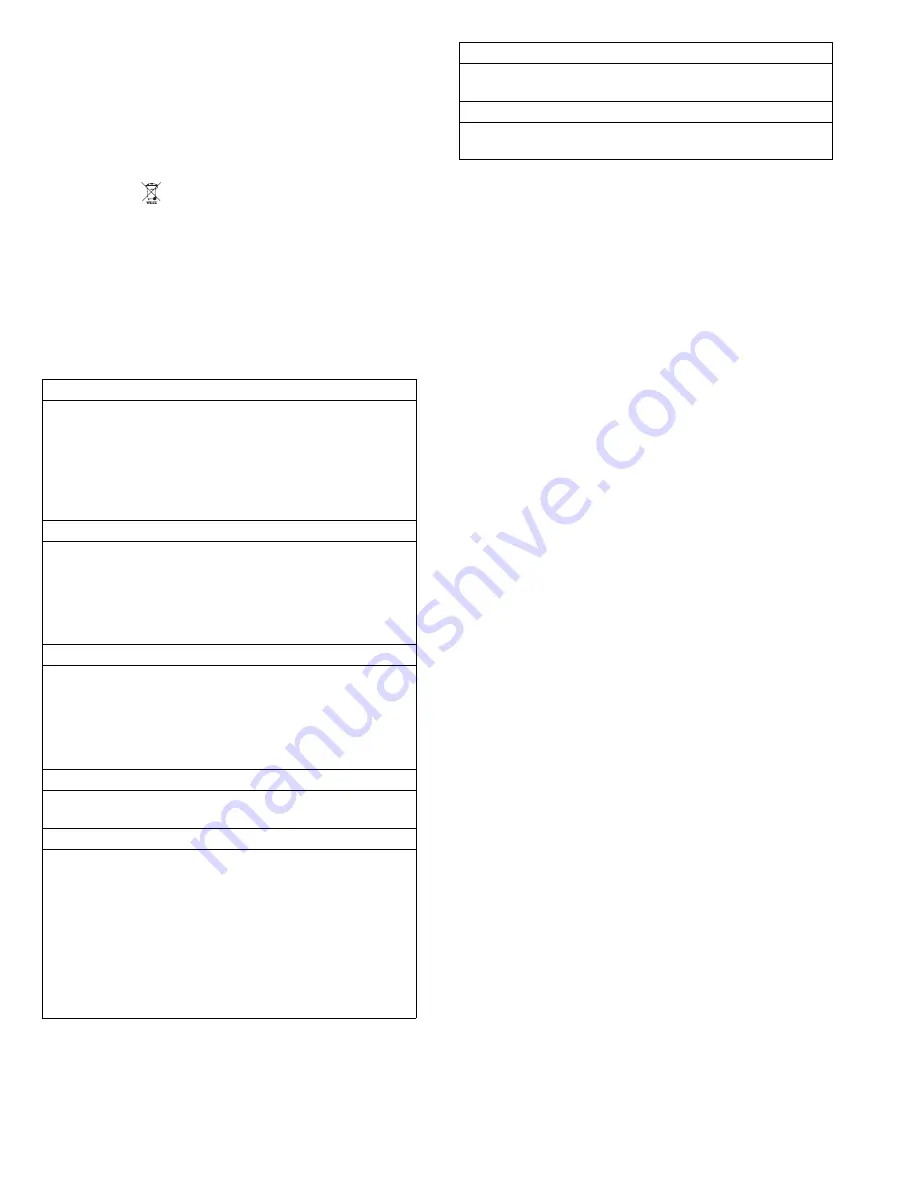
28
I11
Machine disposal
At the end of the product’s life cycle, make sure the
equipment is not dispersed in the environment. The
equipment must be disposed of in compliance with cur-
rent regulations in the country of use.
All metal parts are in s/steel (AISI 304) and removable.
Plastic parts are marked with the letters of the material.
The symbol
on the product indicates that this
product should
not
be treated as domestic waste, but
must be correctly disposed of in order to prevent possi-
ble negative consequences for the environment and the
human health.
Regarding the recycling of this product, please contact
the sales agent or dealer of your product, your after-sales
service or the appropriate waste disposal service.
I12
Troubleshooting
DISHWASHER DOES NOT WASH WELL
1. Check if the suction filter is dirty and clean it thoroughly.
2. Check if the wash jets are clogged by solid food remains.
3. Check that the initial amount of detergent or subsequent
additions are correct.
4. The selected wash cycle is too short. Repeat the cycle.
5. Check that the tank temperature is at least 55°C / 131°F.
6. Check that the dishes are stacked correctly in the racks.
GLASSES AND DISHES ARE NOT DRIED PROPERLY
1. Check that there is rinse-aid in the container and if neces-
sary top up.
2. Check the set amount of rinse-aid (see “setting the
dispensers” paragraph).
3. Check that the water temperature is between 80°C and
90°C.
CONDENSATION ON GLASSES
1. Check that there is rinse-aid in the container and if neces-
sary top up.
2. Check the set amount of rinse-aid (see “setting the
dispensers” paragraph).
3. Remove the rack of glasses immediately the cycle has
ended.
STAINS ON THE GLASSES
1. Only use “non-foaming” products for professional dishwa-
shers.
EXCESSIVE FOAM IN THE TANK
1. Check that the wash water temperature is not less than
55°C / 131°F.
2. Check if the amount of product dispensed by the deter-
gent dispenser is excessive (see “setting the dispensers”
paragraph).
3. Ensure that the tank has not been cleaned with unsuitable
cleaners. Drain the tank and rinse thoroughly before new
wash cycles.
4. If a foaming detergent has been used, drain and refill the
tank with water until the foam disappears.
SMEARS OR SPOTS ON THE GLASSES
1. Reduce the amount of rinse-aid (see “setting the dispen-
sers” paragraph).
THE WASH OR RINSE ARMS TURN SLOWLY
1. Remove and thoroughly clean the arms.
2. Clean the wash pump suction filter.


